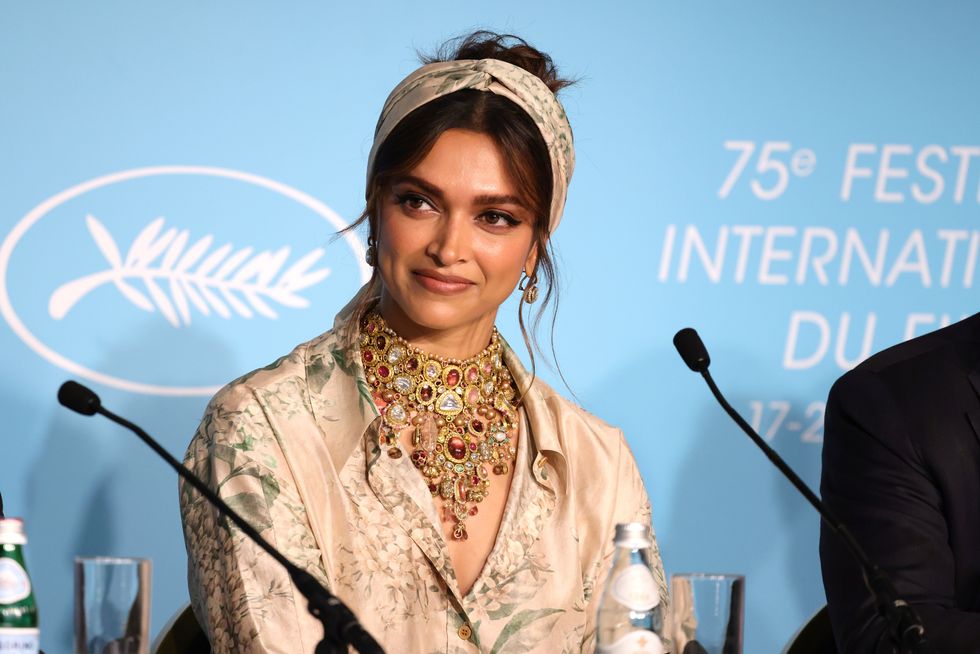It didn’t take a walkout on a picket line or a fiery press conference to shake the Indian film industry; it took Deepika Padukone quietly demanding, “Eight hours.” No dramatic monologue or sensational tweets. Just a simple request: humane hours, overtime pay, and a refusal to push her body and mind past the brink. And just like that, the conversation in Bollywood cracked wide open.
In an industry that glorifies overnight shoots, delayed pack-ups, and “dedication” measured in sweat, Padukone’s decision to exit a high-profile film, Spirit, over her demand for an eight-hour workday was certainly a career move for her. But beyond that, it was a cultural revolt.

When “enough” becomes revolutionary
What made this moment resonate wasn't just who said it, but when. After giving birth to daughter Dua in September 2024, Padukone’s priorities naturally shifted. She didn’t demand luxury. She asked for balance. And Bollywood, unaccustomed to being told “no,” didn’t take it well.
Her terms were straightforward: eight-hour shifts, payment for overtime, profit-sharing, and a refusal to perform intimate scenes or speak in Telugu; reasonable boundaries that suddenly became controversial when voiced by one of the industry’s most bankable stars.
When director Sandeep Reddy Vanga, known for pushing his cast in emotionally aggressive scenes, reportedly rejected these conditions, Padukone walked away from the project. She was swiftly replaced by Triptii Dimri. Vanga later alluded to “script leaks” and an unnamed actor who had “put down” a younger co-star, setting the entire social media ablaze with speculation.
But Deepika wasn’t dragging anyone down; she was raising the floor.

Not a diva, just done
What’s shocking is how quickly people defaulted to calling her “difficult.” And yet, actors like Shah Rukh Khan are known for avoiding night shoots and Akshay Kumar famously doesn’t work Sundays. No one raises eyebrows when they draw boundaries because it’s framed as “professionalism.” But when a new mother does it? Suddenly, it's "unreasonable."
Director Siddharth P. Malhotra, who worked with Rani Mukerji during Hichki, exposed this double standard: “Rani asked for eight-hour shifts to be with her daughter. Kajol only did one shift a day for We Are Family. It’s only a problem when women say it aloud.”
The industry responds. Some with applause, some with alarm
The dominoes have finally started falling. Mani Ratnam called it a necessary reset. Pankaj Tripathi described his own past of 16-18 hour days as “soul-draining,” while Barun Sobti, an actor-turned-producer, said he’d enforce 8-hour shifts if given the reins. Kajol, ever candid, deadpanned, “I love that you can work less,” while Ajay Devgn added that “honest filmmakers” would never object.

But not everyone cheered
Director Tarun Mansukhani worried about logistical chaos. Some commented: “What happens when mid-budget films start losing their heroes to time clocks?” Others whispered about setting a dangerous precedent.
More than just a star’s schedule
This isn’t just about an actor clocking out early. It’s about rethinking the ecosystem.
Tripathi’s remark: “The actor leaves; the labourers stay”, in fact revealed the hierarchy. Spot boys, technicians, junior artists, they don’t get to negotiate. They wait, often unpaid for overtime, as the “show must go on.” The real question Deepika raises is: if she can’t get fair hours, who can?
And then there’s pay. A producer once told her they couldn't afford to pay her more because it would require cutting the male lead's salary and her response was a simple: 'Goodbye'.
The message? Equal pay isn’t a negotiation; it’s a principle.

Bollywood vs the world
Hollywood actors operate under union protections like SAG-AFTRA mandates, rest breaks, overtime pay, and hard stop hours. Violate it, and the studio pays. In contrast, Bollywood thrives on chaos masked as passion. People wear sleeplessness as a badge of honour. But glamour doesn’t justify grind.
While some southern Indian industries like Tollywood and Mollywood run leaner and faster, the Bollywood machine is notoriously disorganised, more time wasted in disarray than in shooting.
As one Mumbai-based casting director put it, “We imitate Hollywood’s sparkle but not their structure.”

Will the industry bend or break?
Deepika's stand has pushed the debate beyond vanity. This is about structure, safety, and sustainability. If the Federation of Western India Cine Employees (FWICE) and the Indian Film & Television Producers Council (IFTPC) don’t use this flashpoint to draw up new frameworks, the fallout will continue to be individual actors “opting out” rather than an industry choosing to change.
There’s already noise on social media from mid-tier actors who’ve faced burnout. They described enduring 14-hour shoot days with minimal breaks and have urged producers to build reasonable rest periods into their schedules. The pot’s boiling.

The curtain call
What started with one woman asking to wrap up on time has opened a conversation that Bollywood has avoided for far too long. Deepika Padukone’s quiet battle has exposed the uncomfortable truth: that this industry, which prides itself on discipline and “family vibes,” often forgets that families need time, sleep, and respect.
She didn’t just ask for eight hours. She asked for dignity and, most importantly, balance. And in doing so, she’s invited every actor, technician, spot boy, and choreographer to do the same.
This isn’t a diva’s whim; it’s like labour is stepping into the spotlight, demanding its long-overdue close-up. Bollywood’s glamour will always shine. But maybe, finally, it won’t have to come at the cost of people collapsing under its weight.





